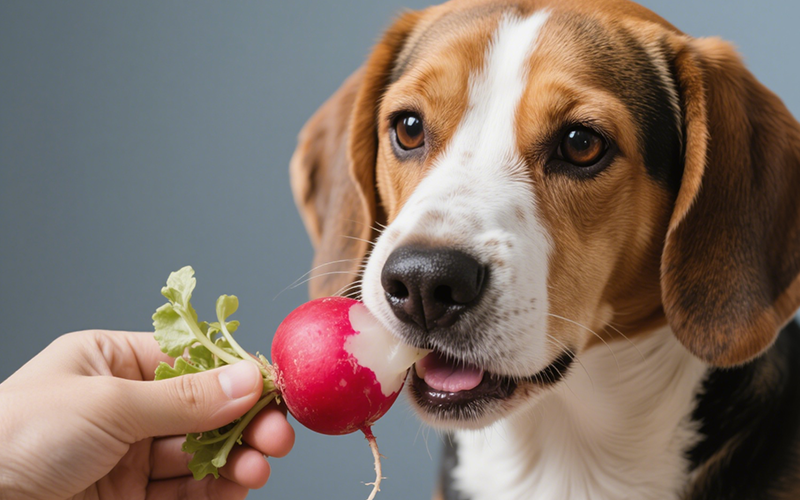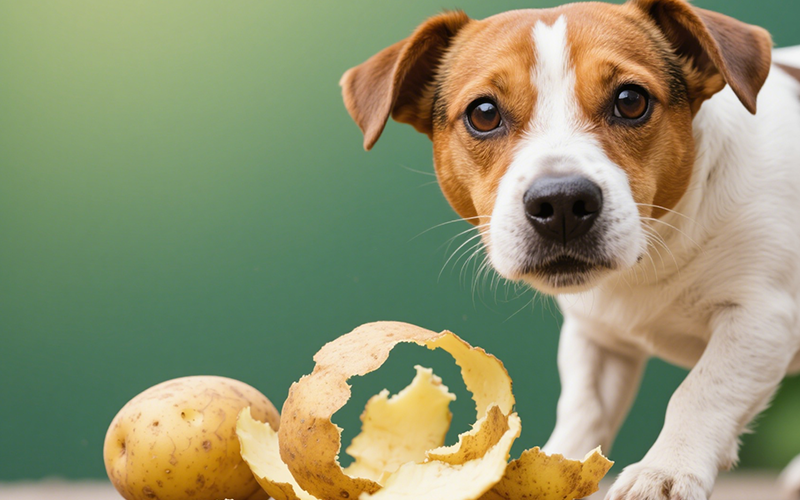Can Dogs Eat Mayonnaise? Here's What You Need to Know
- 20 Mar 2025 09:53
Mayonnaise is a common condiment found in many households, but when it comes to feeding your dog, the question arises: can dogs eat mayonnaise? While mayonnaise is not toxic to dogs, it’s not necessarily the best food for them either. Let’s break down the potential risks and benefits of mayonnaise for dogs, and whether it’s safe to include in their diet.

Is Mayonnaise Safe for Dogs? 🤔
In small quantities, mayonnaise is not toxic to dogs, but it’s not the healthiest choice either. The ingredients in mayonnaise—egg yolks, oil, and vinegar—are generally safe for dogs in moderation. However, there are several reasons why you should be cautious when considering mayonnaise as a treat for your dog.
High in Fat and Calories 🥵
Mayonnaise is rich in fat and calories, which can lead to obesity and other health problems if consumed too frequently or in large quantities. If your dog is already on the heavier side or prone to weight gain, mayonnaise is best avoided or limited as a treat.Added Salt and Seasonings 🧂
Some store-bought mayonnaise contains added salt, which can be harmful to dogs in large amounts. Too much salt can lead to dehydration, kidney problems, and high blood pressure. Some varieties also include spices or garlic, which are toxic to dogs and should be avoided at all costs.Raw Eggs 🥚
Traditional mayonnaise is made with raw eggs, which could carry a risk of salmonella infection. While the risk is low, it's still something to consider, especially if you're making homemade mayonnaise for your dog. Dogs with compromised immune systems may be more vulnerable to bacterial infections.Choking Hazard 🚨
If you are using mayonnaise as a way to coat food (like in sandwiches or in mixed dishes), it’s important to ensure that your dog isn’t eating large pieces that could pose a choking hazard.
Health Risks of Mayonnaise for Dogs ⚠️
Gastrointestinal Upset 😖
Due to its high fat content, feeding your dog too much mayonnaise can lead to vomiting, diarrhea, or stomach discomfort. Dogs are not accustomed to high-fat foods, so excessive consumption can upset their digestive system.Pancreatitis 🏥
Frequent consumption of rich, fatty foods like mayonnaise can lead to pancreatitis (inflammation of the pancreas). This is a serious condition that can cause symptoms like abdominal pain, lethargy, and vomiting. It can be life-threatening if left untreated, so it's best to avoid feeding your dog high-fat foods like mayonnaise.Obesity 🐕
Since mayonnaise is calorie-dense, feeding it to your dog regularly can lead to weight gain over time. Obesity can exacerbate other health issues like joint problems, diabetes, and heart disease.
How to Safely Serve Mayonnaise to Dogs 🐾
If you still want to share a little mayonnaise with your dog, it's important to offer it in moderation. Here are some tips to make it safer:
Use Small Quantities 🧑🍳
If you want to give your dog a taste of mayonnaise, offer only a tiny amount—just a small spoonful will do. This will limit the amount of fat and calories your dog is consuming.Check the Ingredients 📋
If you're using store-bought mayonnaise, be sure to check the label for harmful additives like garlic, onion powder, or excessive salt. Opt for a plain, unsweetened variety without any toxic ingredients. Homemade mayonnaise made with fresh, safe ingredients may be a better option if you decide to make it yourself.Occasional Treat 🦴
Mayonnaise should only be an occasional treat, not a regular addition to your dog’s diet. Keep it as a special treat rather than a daily food item.
Healthy Alternatives to Mayonnaise for Dogs 🥕🐾
If you want to offer your dog something creamy or flavorful, here are some healthier options:
Plain Yogurt 🧑🍳
Low-fat, plain yogurt can be a great alternative to mayonnaise. It’s a good source of calcium and probiotics for digestive health. Just make sure it’s free from artificial sweeteners like xylitol, which is toxic to dogs.Peanut Butter 🥜
Unsweetened, xylitol-free peanut butter is a dog-friendly spread that many dogs love. It’s rich in protein and healthy fats and can be used as a treat or to stuff in toys like a Kong.Mashed Sweet Potatoes 🍠
Cooked and mashed sweet potatoes make a nutritious, dog-safe treat. They’re full of fiber and vitamins and can provide your dog with a tasty, healthy snack.Cottage Cheese 🧀
Low-fat cottage cheese can also be a great alternative. It’s easier for dogs to digest than regular cheese and contains protein and calcium. Just make sure your dog isn’t lactose intolerant before offering this.
How Technology Can Help With Pet Health 🧠
If you're ever unsure about feeding your dog certain foods, consider using PettureX. This pet AI software offers 24-hour online consultations and pet image recognition, helping you make informed decisions about your dog’s health and nutrition. It can be a helpful tool in managing your dog’s diet and health, especially when considering new or unfamiliar foods. 📱🐕
Final Thoughts: Can Dogs Eat Mayonnaise?
While dogs can eat mayonnaise in small amounts and occasionally, it’s not the healthiest food option for them. Mayonnaise is high in fat and calories, and it can cause gastrointestinal issues, obesity, and even pancreatitis if fed regularly. Always serve it in moderation, check the ingredients for harmful additives, and consider healthier alternatives like plain yogurt or peanut butter.
For more guidance on your dog’s diet and to keep them healthy, PettureX is a great resource for making the best decisions for your pet! 🐕🌟
Related

Radish Bites for Your Buddy? A Vet-Reviewed Guide on Whether Dogs Can Eat Radishes
- 22 Apr 2025
Potato Peels for Pooches? Unpeeling the Risks and Facts for Dog Owners
- 22 Apr 2025
Crunchy Curiosity: Can Dogs Safely Snack on Pork Rinds? A Deep Dive
- 21 Apr 2025
Pomegranate Seeds and Pooches: A Deep Dive into Whether Dogs Can Safely Indulge
- 21 Apr 2025
Can Dogs Eat Peaches? Vet Explains Benefits, Cyanide Risks & Safe Serving
- 16 Apr 2025
Can Dogs Eat Mulberries? Vet Explains Safety, Benefits & Potential Risks
- 16 Apr 2025
Can Dogs Eat Mozzarella? Vet Explains the Cheesy Truth (Risks & Benefits)
- 16 Apr 2025
Can Dogs Eat Mango Skin? Vet Explains Why It's a Risky Chew!
- 16 Apr 2025
Can Dogs Eat Maple Syrup? The Sugary Truth & Why Vets Advise Against It
- 16 Apr 2025
Can Dogs Eat Mac n Cheese? Vet Explains Why This Comfort Food Is Unsafe!
- 16 Apr 2025
